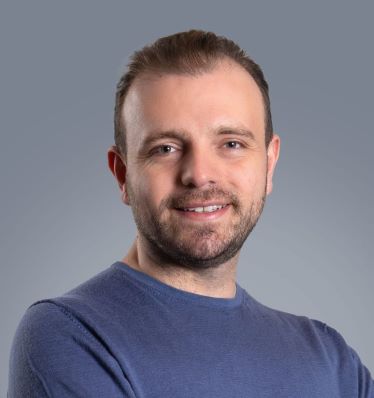A Lifelong Learning about Food Transitions
Hello There, Emrah Karakaya!

Emrah Karakaya is an associate professor of industrial dynamics and sustainable business models. In his research, he explores how industrial sectors – for example energy and food – change over time and towards sustainability. He is also a visiting scholar at Harvard University and the theme leader for Value Chains and Consumption at KTH FOOD.
From childhood curiosity to academic pursuit
Karakaya is interested in business and societal perspectives, and has an interdisciplinary knowledge base on diffusion of innovations in society as well as industrial and socio-technical dynamics. Over the years, he has have studied various cases of sustainability transitions, such as renewable energy technologies, hydrogen-based steelmaking, electrical vehicles and alternative aviation fuels. He believes that ongoing transitions in various sectors are intertwined and is interested in better understanding how a transition in one sector affects another. His interest in studying the agro-food sector comes mainly from this.
In addition, there are some personal reasons for his interest.
- During my childhood, I spent my summers in my uncle’s fig and olive orchard in a small village in Turkey. During those years, I experienced what food production means as well as the importance of weather conditions and social justice. Today, I still have family members active in agriculture and my interest in agro-food systems has always been very high, Karakaya comments.
A sector of challenges and opportunities
Karakaya points out that the food sector, as a socio-technical system, faces several sustainability challenges. Climate change, energy security and supply chain resilience are just a few to name. In addition, ongoing wars around the globe raise the question of how people affected by war can access food and how we can make the food value chains more resilient at both local and global levels.
However, there are also big opportunities. We are witnessing a number of food innovations, such as within cellular agriculture, alternative protein substitutes and vertical farming, which transform the agro-food value chains. This includes how we produce, process, package, supply and distribute food. Karakaya thinks there is an increasing need for interdisciplinary research to study business models and social acceptance of food innovations, which requires a knowledge basis of both social and technical sciences.
- I would like to take a more active role in initiating such interdisciplinary research for socio-technical transitions in agro-food systems, collaborating with researchers from other fields. I am also interested in exploring how such transitions affect sustainability, justice and resilience, especially in times of increased digitalization and electrification in various sectors of society and industry.
Collaboration is key
To face the many challenges in today’s food systems, finding good collaborators can be of great importance. KTH FOOD brings together diverse actors, such as researchers from various disciplines as well as stakeholders from companies and non-profit organizations.
- We had a great start at KTH FOOD center, and I feel very inspired and energized. It is the place-to-be, where everyone is welcomed. Together, we are striving for a healthier and more sustainable food system while learning from each other, Karakaya finishes.
